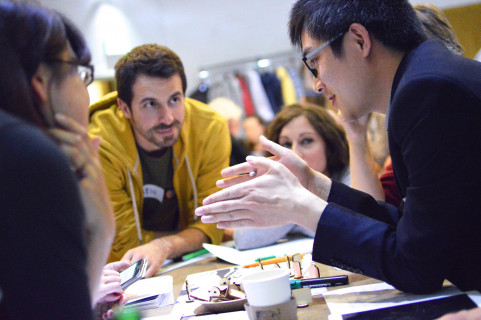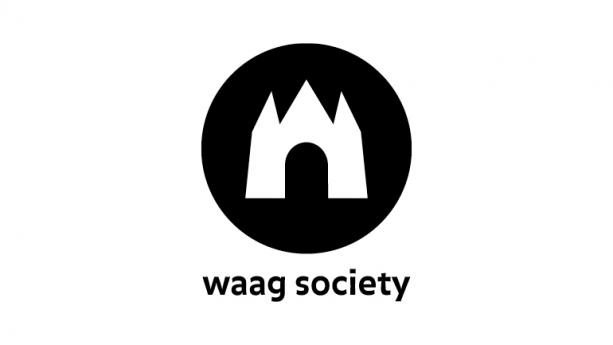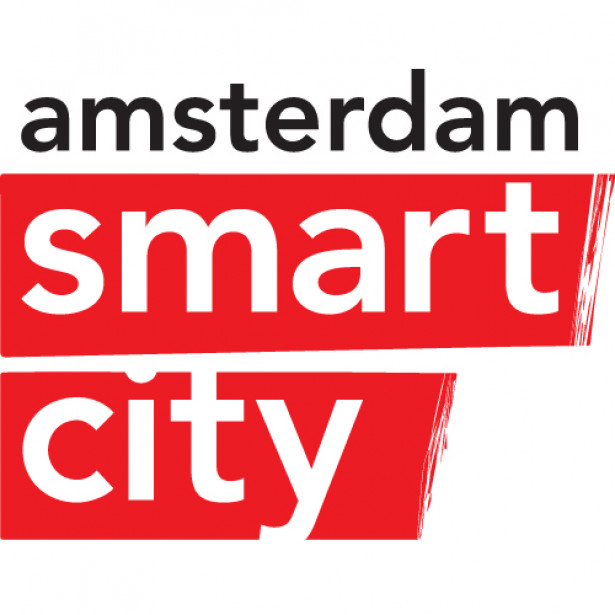The Smart Citizens Lab helps people to explore tools and applications to map the world around us. Along with citizens, scientists, and designers, we deal with themes ranging from air quality to the conditions of bathing water to noise pollution.
Amsterdam Smart Citizens Lab

What is the goal of the project?
The fast uptake of FabLabs and Maker Spaces is creating new opportunities for citizen-driven innovation in domains ranging from open hardware to digital fabrication, community informatics, and participatory sensing. In the past five years, the broad availability of open hardware tools, the creation of online data sharing platforms, and the easy access to maker spaces have fostered the design of low cost and open source sensors that communities can appropriate to engage in environmental action. By collectively measuring and making sense of environmental phenomena citizens can become aware of how their lifestyle affects the ecosystem and be inspired to adopt more sustainable behaviours and demand collective action.
What is the result of the project?
In the Smart Citizens Lab we help people to explore tools and applications to map the world around us. Along with citizens, scientists, and designers, we deal with themes ranging from air quality to the conditions of bathing water to noise pollution. By facilitating collective action, the city will turn into a more healthy, social and beautiful place to live & work.
Who initiated the project and which organizations are involved?
The Amsterdam Smart Citizens Lab was initiated by Waag Society and Amsterdam Smart City. Waag Society runs the Amsterdam Smart Citizen Lab in cooperation with the City of Amsterdam (CTO), HvA, RIVM, SenseMakers, Alterra, AMS, Amsterdam Economic Board, Fablab Amsterdam and Waag's Open Wetlab. This initiative is internationally supported by Fablab Barcelona, Microgiants, FutureEverything, the EU Joint Research Center and Dundee University, amongst others.
What is the next step?
The Amsterdam Smart Citizens Lab continues to run and will refine its methodology in the EU project Making Sense (separate entry). It is open to new entrants from all walks of lives, and institutions to uptake and sustain its solutions.
What can other cities learn from your project?
The Amsterdam Smart Citizens Lab has had successful editions in 2014. 2015 an 2016, and stood at the start of the international project Making Sense. Key to its success are its use and development of open, fair and inclusive technologies; its wide and deep, lasting collaborations, and it's large group of participants and supporters.







Hi Andy ,
Thanks for your message. We have quite some experience in low cost air quality monitoring. We recently did a pilot called Urban AirQ (https://waag.org/en/project/urban-airq) where we tested our own sensor kit. (measuring NO2, PM, Humidity, Temperature) https://www.fablabs.io/projects/bora-sensor-kit
We also connected the Bora sensor to the smartcitizen.me platform, but at this point they're not online anymore, since the pilot is finished. In the project Making Sense we are capturing all of our learnings (hardware, software, community engagement) and will present results after the summer. Feel free to contact me at gijs [at] waag [dot] org
My best, Gijs
Low cost AQ monitoring
I am interested in low cost Air Quality monitoring options, and was interested to see Amsterdam uses the Smart Citizen platform and equipment (link below), however I am unable to get any response via their website and everything seems to have gone "off air". Does anybody know what is the status or alternative options.
https://smartcitizen.me
Many thanks
Andy
@samlloyd Sam... Am I the only one interested here in how Amsterdam would like to tackle the most critical issue earth citizens are responsible for? Keep me posted!
Beste Gijs,
Thanks for your reply. My interest was peaked by the "mapping" technology. Really like using the crowd.
Now that I have read a bit more, I am of the opinion that this is more about collecting data than developing or using mapping tools. Still cool just not sure my need to map public spaces falls within the scoop of the project.
Warmest regards,
Jim
Hi Sam,
My apologies for this late reply. You can always send me an email and ask me anything on the project! My mail adres is gijs [at] waag [dot] org
best, Gijs
Hi Jim Bowes,
My apologies for this late reply. You can find more information about the Smart Citizens Lab here: http://waag.org/en/lab/amsterdam-smart-citizens-lab or download our publication on how to engage with citizens in starting a bottom-up citizens science projects in environmental sensing. http://waag.org/en/news/amsterdam-smart-citizens-lab-publication
If you have any more question let me know through gijs [at] waag [dot] org
best, Gijs
I'm a postgraduate student researching the ways Amsterdam is adapting to climate change. Would it be possible to speak to someone involved in this project to discuss further the unique perspective you may have on this subject?
How can I learn more about this program?
I am working on a project to help cities communicate with their citizens using natural-media (low tech outdoor communication). Mapping solutions will be an important part of how we operate. Natural-media allows for high targeted messages. However, cities demand control over where messages are placed and what those messages will be. I have used Google maps for years but it has limitation r should I say they are great maps with locations but that is just one part of what could be.